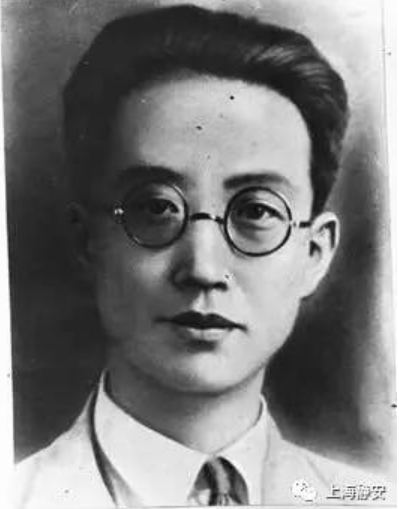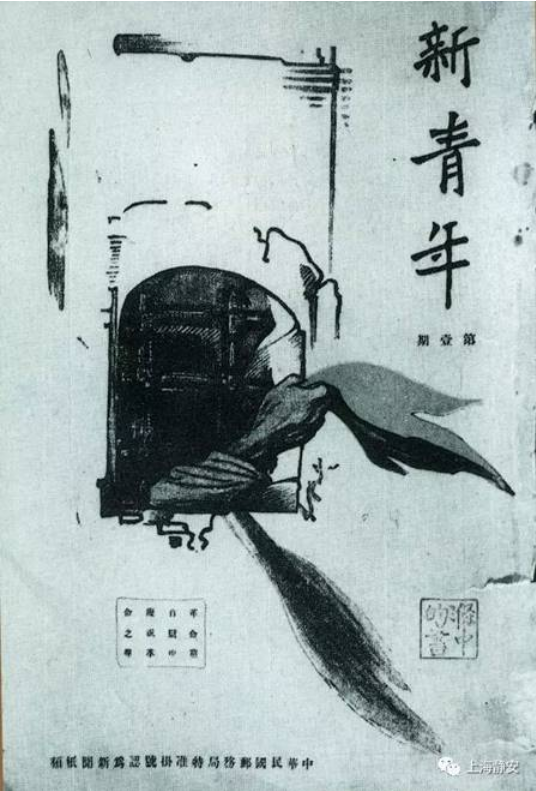On June 18, 1935, a tall person walked calmly toward the execution place. With an earsplitting gunshot, a young life passed away. However, the revolutionary belief of the liberation of country, the independence of nation and the happiness of people didn’t die. The unyielding revolutionary will spread across the country and thrived like a kindling material.

Qu Qiubai
This dead young man was Qu Qiuba, one of the important leaders in the early period of the CPC. Born in 1899 in Changzhou, Jiangsu Province, Qu was quite smart and hardworking in his boyhood. After the outbreak of the May Fourth Movement, he energetically participated in the student movement and became one of the leaders of students’ patriotic movement in Beijing.
In September 1920, Qu was hired by the Beijing newspaper Morning News as a correspondent to go to inspect and report in Soviet Russia, and he firmly desired to “open up a bright road for all the people”. During the two years there, he sedulously read the works of Marxism and the documents of Bolshevik, and came into contact with people from different levels and fields. On one hand, he inspected the situation of politics, economy, culture, foreign affairs, nationality and religion in Russia through practice. On the other hand, he established the Marxism materialistic worldview. When the Toilers of the Far East was held in Moscow, he insisted on attending the conference even though he was seriously ill at that time. The doctor said that one of his lungs had festered, which could only last for two to three years. However, he worked as the interpreter and translator both day and night, and thought about the motherland and the people thousand miles away.

In June 1923, the New Youth was changed from a monthly to a quarterly and Qu Qiubai was the chief editor
Needed by the domestic revolution, Qu left Moscow in 1922 and came back by train through Siberia railroad. After the Second National Congress of CPC, he worked as the chief editor of New Youth (quarterly) and Vanguard, and the editor of The Guide Weekly, all of the three were publications of the Central Committee of the CPC. He published many articles about politics on these publications, analyzed China’s national condition with Marxism, investigated the social condition of China, discussed the problems in China’s revolution and made pioneering contribution to the ideological and theoretical construction of the CPC.
Later, on the First National Congress of Kuomintang, Qu was elected as an Alternate Member of the Central Executive Committee of Kuomintang. Then he was a Member of the Central Political Council of Kuomintang and made contribution to the Kuomintang-Communist cooperation. On the fourth, fifth and sixth National Congress of CPC, he was elected as a Member of Central Committee and Member of Political Bureau of the Central Committee, and he led the May Thirtieth Movement and became an important leader of the CPC. In August 1927, at the critical moment of the failure of the Great Revolution, Qu presided over the August 7th Meeting, which established the general principles of Agrarian Revolution and resisting the Kuomintang through military force, and saved the CPC and the revolution.
In 1931, due to the wrong attack of Wang Ming, Qu was deprived of the position as a party leader. He faced this calmly and wrote to the Comintern and the Central Committee according to the requirement of the Central Committee, to shoulder the responsibility and accept the criticism. He didn’t complain about it. He then participated in the left-wing movement and went to Shanghai to fight side by side with Lu Xun, with whom he developed deep friendship. During this period, his lived in extreme hardship with only sixteen to seventeen yuan of living expense for the whole family annually. Every day, he worked for over 16 hours even with serious lung disease. But he was calm and peaceful, and never showed any dissatisfaction before his family members, friends and colleagues. By the autumn and winter of 1933, Qu had led the left-wing for nearly three years. People felt sorry for his leaving Shanghai and Mao Dun once wrote a poem saying “both Qu Shuang and Luxun, the two leaders of left-wing school of literature, had their own merits.” Qu Shuang was exactly the formal name of Qu Qiubai used at school.

In July 1923, the Central Committee of CPC established the Pioneer (quarterly) with Qu Qiubai as the chief editor.
In February 1934, Qu went to the Central Revolutionary Base Area in Ruijin to be the Member of the Central Executive Committee, Member of the People’s Education Committee and Minister of the Ministry of Education of the Chinese Soviet Republic. In February 1935, he was arrested by the Kuomintang in Changting County, Fujian province. In order to strengthen the rule of Kuomintang, the autocrat and traitor to the people, the enemies attempted to induce to capitulate this big shot who was world-famous and admired by the people. However, no matter how they tortured him physically or tempted him, Qu always kept his revolutionary integrity, leaving the enemies empty-handed. In his long written confession, he passionately eulogized the CPC and Soviet Areas and disclosed the killing and encirclement of Kuomintang army. He even strived to promote the revolutionary ideas among the guarding soldiers and was finally sentenced to death by the ashamed and angry reactionary of Kuomintang.
On June 18, 1935, Qu died as a martyr. He was calm, peaceful and fearless as usual. Faced with the command of execution by shooting, he said calmly that “there are short rests in life and I’m going to have a long rest now.” with the swords and guns of enemies around him, Qu walked to the execution place slowly and leisurely with a cigarette at hand. Along the way he sang “The International” and the “Red Army Song" in a low voice, and shouted "Long live the CPC", "Long live communism" and other slogans. After reaching the execution place, he sit down on the grass, crossed his legs, and smiled and nodded to the executioner, saying "very good here!" Qu was only 36 when he was shot dead.
Mao Zedong once spoke highly of Qu, saying “Qu acts like a hero during the hard time of revolution and would rather be shot dead than yield to the enemy. His spirit of working for the people, his will of being unyielding when facing death, and his ideas kept in his writings will live forever. ”
(Source: Site Memorial of the Second National Congress of CPC)